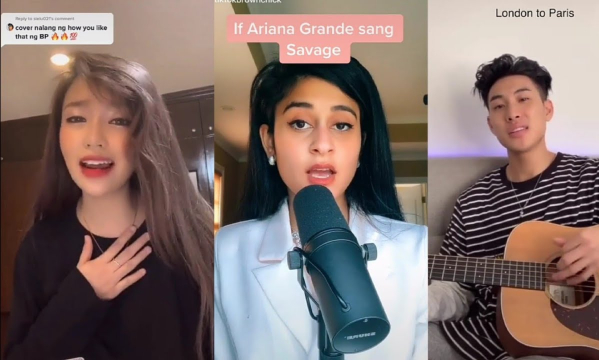
Posted on 05 April 2023
Taking Songs Without Permission, 500 Million Fine?
Beware taking songs without permission
Covering songs is increasingly being done by people today. In fact, it is not uncommon for the covered song to become better known than the song performed by the original singer. Covering a song means singing or performing a song that has been commercially released. Usually, the results of song covers are published through social networks, such as Youtube, Intagram, TikTok, and others.
However, are song covers allowed? Is there a law that regulates song covers?
Law on song covers The law that regulates song covers is Law Number 28 of 2014 concerning Copyright. In this law, copyright is the exclusive right of the creator that arises automatically based on the declarative principle. Songs and music are included in objects or creations that are protected by copyright so that they cannot be used carelessly. There are moral rights and economic rights of the creator or copyright holder that must be fulfilled. These economic rights consist of licenses and royalties. A license is a written permission given by the copyright holder or the owner of the related rights to other parties for their creations. While royalties are compensation for the use of the creation or related rights product. The related rights in question are exclusive rights for performers, phonogram producers, or broadcasters.
Is it okay to cover songs? Based on the explanation above, permission is needed to use songs and music that are the work of other people or parties. Otherwise, the use violates copyright and can be prosecuted. In Article 9 letter d, the creator or copyright holder has economic rights in the adaptation, arrangement, transformation of the work.
Any person who does these things must obtain the permission of the creator or copyright holder. However, creating and publishing a cover song can be an act that does not violate copyright. According to Article 43 letter d, the creation and dissemination of copyright content through information and communication technology media that is non-commercial and/or benefits the creator or related parties, or the creator expresses no objection to the creation and dissemination, is not considered an infringement of copyright.
However, if the cover song is done with commercial purposes and profit, and without the permission of the creator and related parties, or the creator objected, then the act becomes an act of copyright infringement. The commercial form in question is for example: holding a concert or paid performance using the song for promotion to install adsense Any person who without rights or without the permission of the creator or copyright holder infringes economic rights for commercial use can be charged if the songwriter reports it. The punishment for such acts is imprisonment for a maximum of three years and/or a maximum fine of Rp 500 million.
Reference: Law Number 28 Year 2014 on Copyright
Source: Kompas.com
However, are song covers allowed? Is there a law that regulates song covers?
Law on song covers The law that regulates song covers is Law Number 28 of 2014 concerning Copyright. In this law, copyright is the exclusive right of the creator that arises automatically based on the declarative principle. Songs and music are included in objects or creations that are protected by copyright so that they cannot be used carelessly. There are moral rights and economic rights of the creator or copyright holder that must be fulfilled. These economic rights consist of licenses and royalties. A license is a written permission given by the copyright holder or the owner of the related rights to other parties for their creations. While royalties are compensation for the use of the creation or related rights product. The related rights in question are exclusive rights for performers, phonogram producers, or broadcasters.
Is it okay to cover songs? Based on the explanation above, permission is needed to use songs and music that are the work of other people or parties. Otherwise, the use violates copyright and can be prosecuted. In Article 9 letter d, the creator or copyright holder has economic rights in the adaptation, arrangement, transformation of the work.
Any person who does these things must obtain the permission of the creator or copyright holder. However, creating and publishing a cover song can be an act that does not violate copyright. According to Article 43 letter d, the creation and dissemination of copyright content through information and communication technology media that is non-commercial and/or benefits the creator or related parties, or the creator expresses no objection to the creation and dissemination, is not considered an infringement of copyright.
However, if the cover song is done with commercial purposes and profit, and without the permission of the creator and related parties, or the creator objected, then the act becomes an act of copyright infringement. The commercial form in question is for example: holding a concert or paid performance using the song for promotion to install adsense Any person who without rights or without the permission of the creator or copyright holder infringes economic rights for commercial use can be charged if the songwriter reports it. The punishment for such acts is imprisonment for a maximum of three years and/or a maximum fine of Rp 500 million.
Reference: Law Number 28 Year 2014 on Copyright
Source: Kompas.com



Social Media